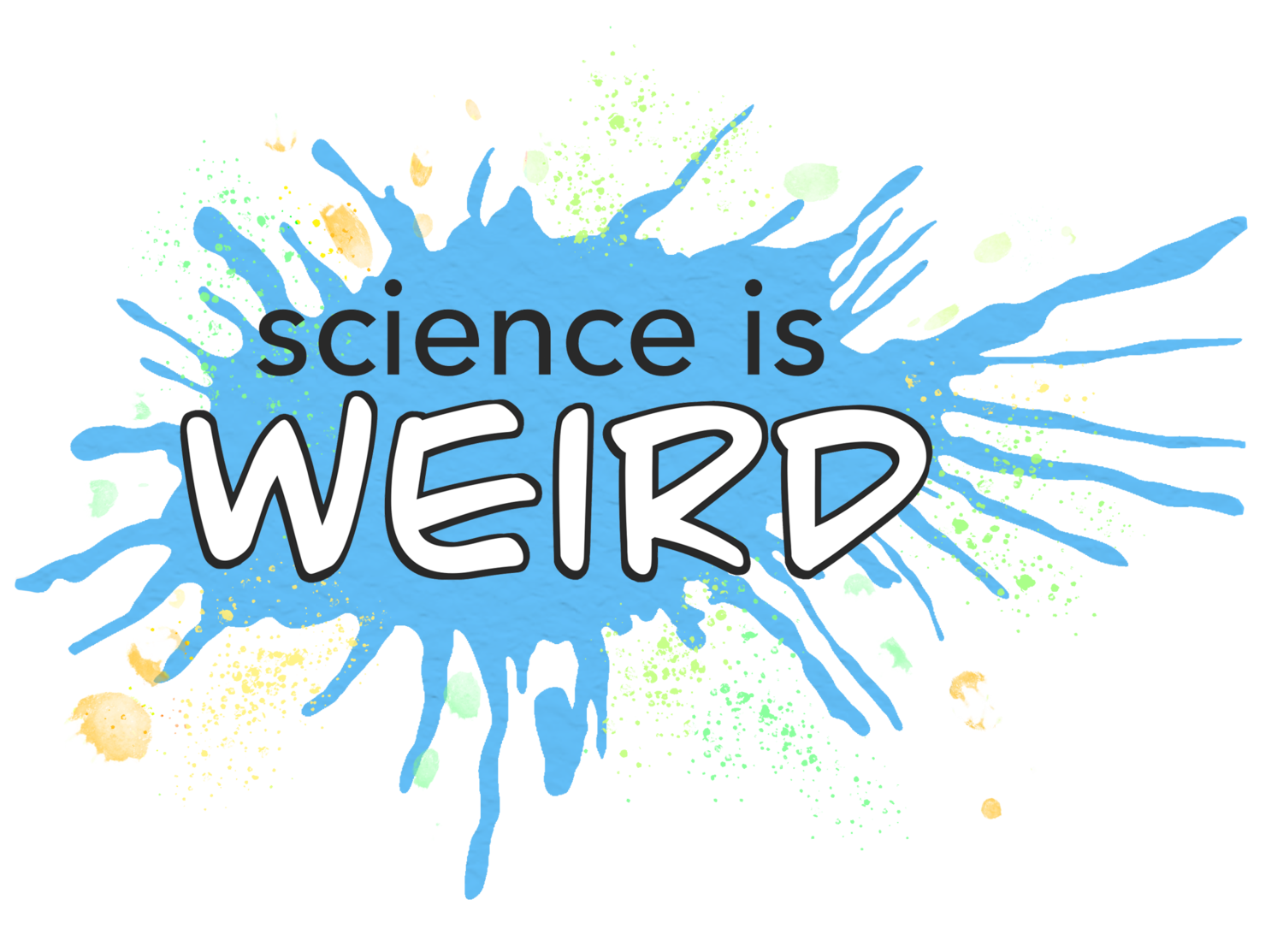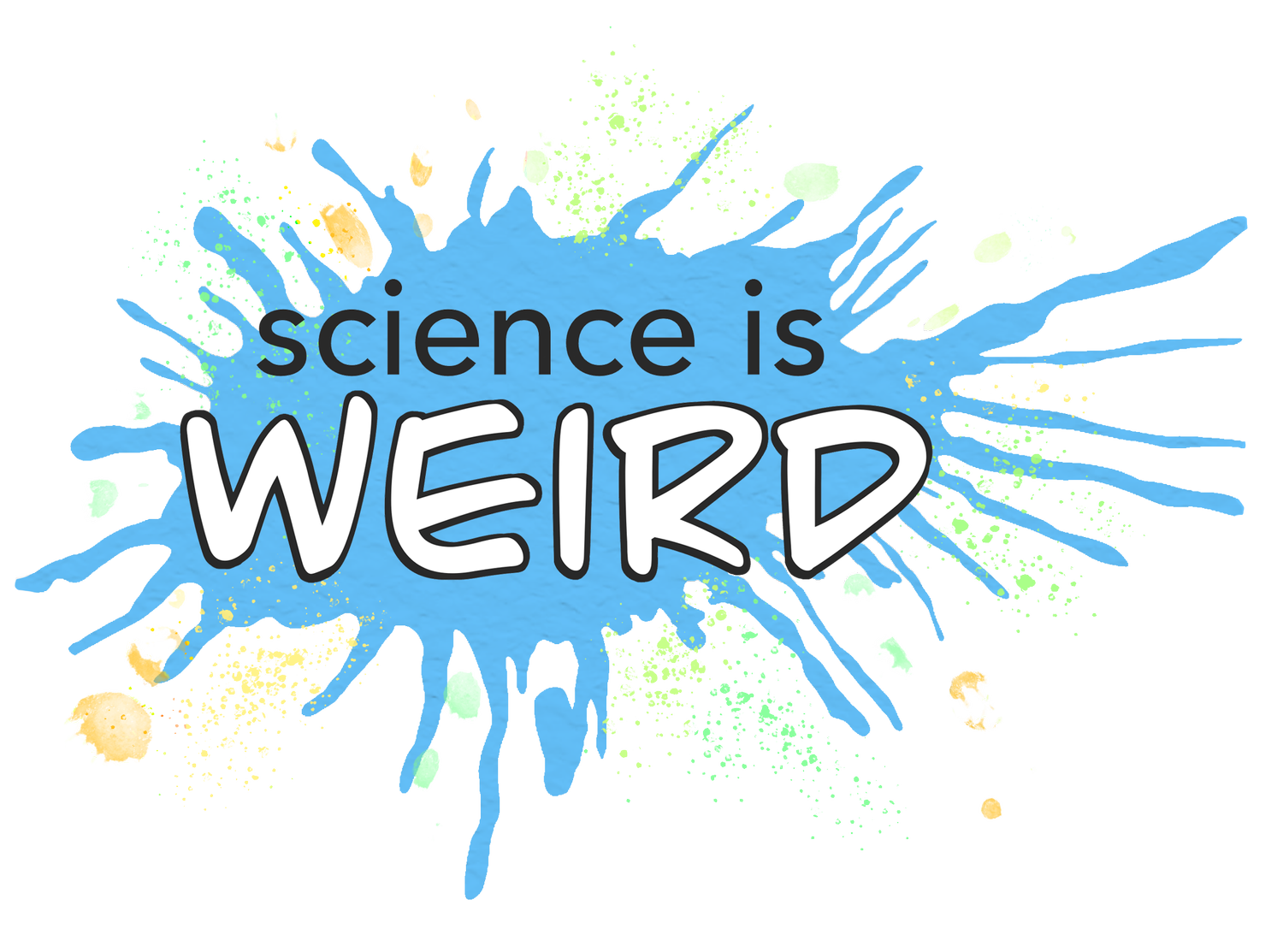Memory cards
How do you solve a problem like forgetting?
There's a hole in education. Almost no one talks about it. And in Science is WEIRD... we fill it.
A Tragedy
Imagine a student working hard in a class — taking notes, asking questions, reading textbooks, cramming answers...
Her hard work pays off — she gets a perfect score on her test.
Yay!
And, just weeks later, she's forgotten almost everything she learned.
Boo!
Alas, brains
Has that happened to you? Forgetting is the plague of every subject. Think about the math you learned, or the foreign languages.
The truth is, our brains are built to forget. Most of what we learned disappears shortly after we learn it. Cognitive scientists have measured this — they call it the forgetting curve.
When you really want to learn something, this can be infuriating.
Our other tools
Back when we started Science is WEIRD, we knew that, if we wanted to create the Ultimate Science Curriculum, we'd need to beat forgetting.
And so we filled each lesson with the lost tools of learning —
Riddles! Stories! Mysterious images!
Metaphors! Shocking insights!
And you know what? It helped a lot! We’re always tickled when a kid uses something they learned a year ago to solve a new riddle. (Also, those tools — Egan's tools — also fill our lessons with emotion and meaning.)
But for families who, with us, want to achieve the big, fat, hairy goal of helping kids cultivate genius… it's not enough.
We have to go bigger.
The fix
Meet Herman Ebbinghaus — the psychologist who, in 1885, cracked the code.
He was the first to measure the forgetting curve, and he was the first to figure out how to fix it.
He called his answer "spaced repetition".
Spaced repetition (in a nutshell)
1. Learn something.
2. Wait a day.
3. Quiz yourself on it.
4. Quiz yourself again after two days... then after four.
Then, after a week.
Then, after two weeks...
a month...
two months...
four months...
Each time you quiz, you'll automatically remember the information for longer. With only a handful of repetitions, you'll keep it in your mind for more than a year. With only a handful more, you'll keep it for the rest of your life.
And each quizzing takes only a few seconds.
If you invest just a few minutes a day... you can remember almost everything important that you learn, forever.
Gah! Nerds!
Maybe you're thinking right now: Yeah, but who cares about facts? We want big-picture understanding! Creativity! Genius!
The truth is, understanding, creativity, and genius don't come without a heap o' facts. Brilliance isn't top-down, it's bottom-up.
(Full disclosure: we’re spaced-repetition nuts. Brandon started 15 years ago, and now tends to a collection of more than 14,000 online cards. If you printed those out, they'd make a stack more than 10 feet tall!
New words, weird facts, sad poems, the names of baristas he meets… he uses spaced repetition to run his life. And as he never fails to tell people: it's what powers his creativity.
Why isn't this being used in schools?!
That's what psychologists have been asking for more than a century!
If you'd like to learn more, you might enjoy this classic article from WIRED magazine — "Want to Remember Everything You'll Ever Learn? Surrender to This Algorithm". (It's how we first found out about spaced repetition.)
How we use spaced repetition
How do we use it in science?
For each of our 180 lessons in our Big Course, we make spaced repetition flashcards.
Each week, we take the most amazing insights, metaphors, stories, and images from the lesson, and turn them into Anki flashcards. (Anki is the most popular spaced repetition program. And it’s free!)
You'll get the deck in your inbox. (No extra charge.) Then, daily, open the software with your kid, and quiz the cards due that day.
It takes just a couple minutes — but as the years go on, they (and you!) will remember everything important that we learned. Those facts will swirl together in your head, making new idea babies. You'll start asking new questions, hatching new ideas...
You'll start cultivating genius.
How do we use it in close reading?
In our “Reading Comics” class, we turn every vocabulary word into an Anki card, so you can learn the word once, and use it for the rest of your life.
Do students have to do this?
Nope. Never.
We have levels of participation — if all your kid wants to do is show up, that's all they need to do. (No homework required!)
But if they want to tackle the project of knowing all the words, or of understanding Life, the Universe, and Everything...
We’ve got them covered.








